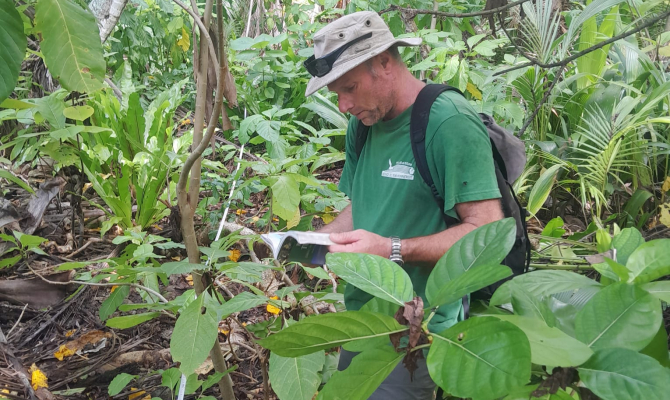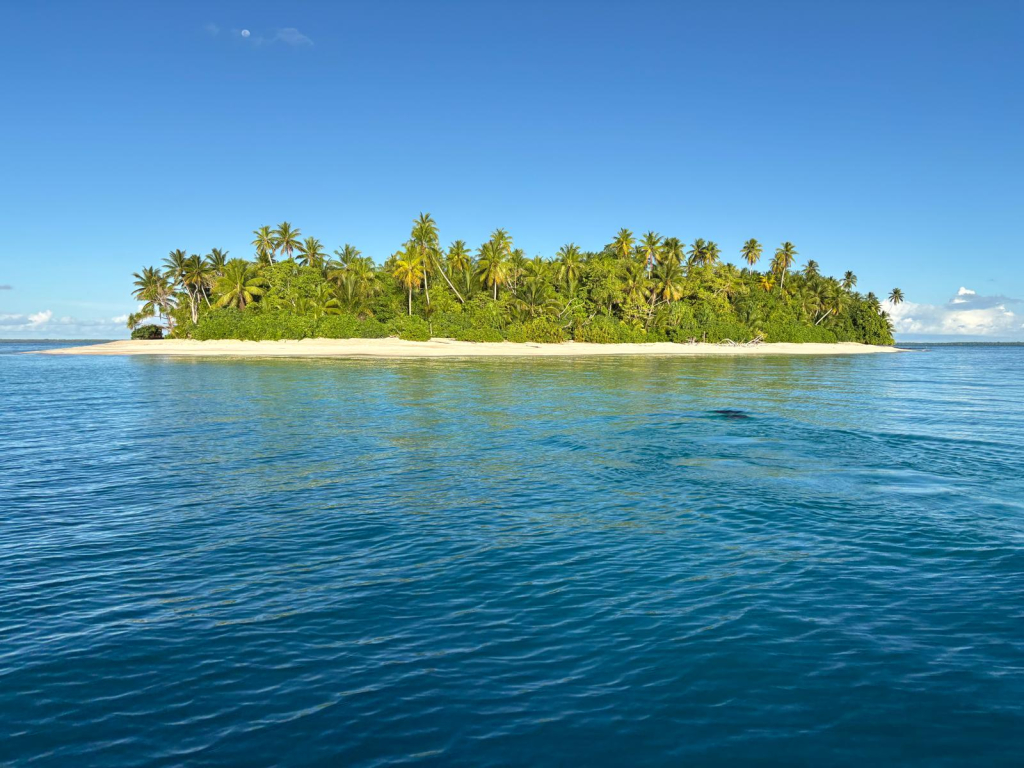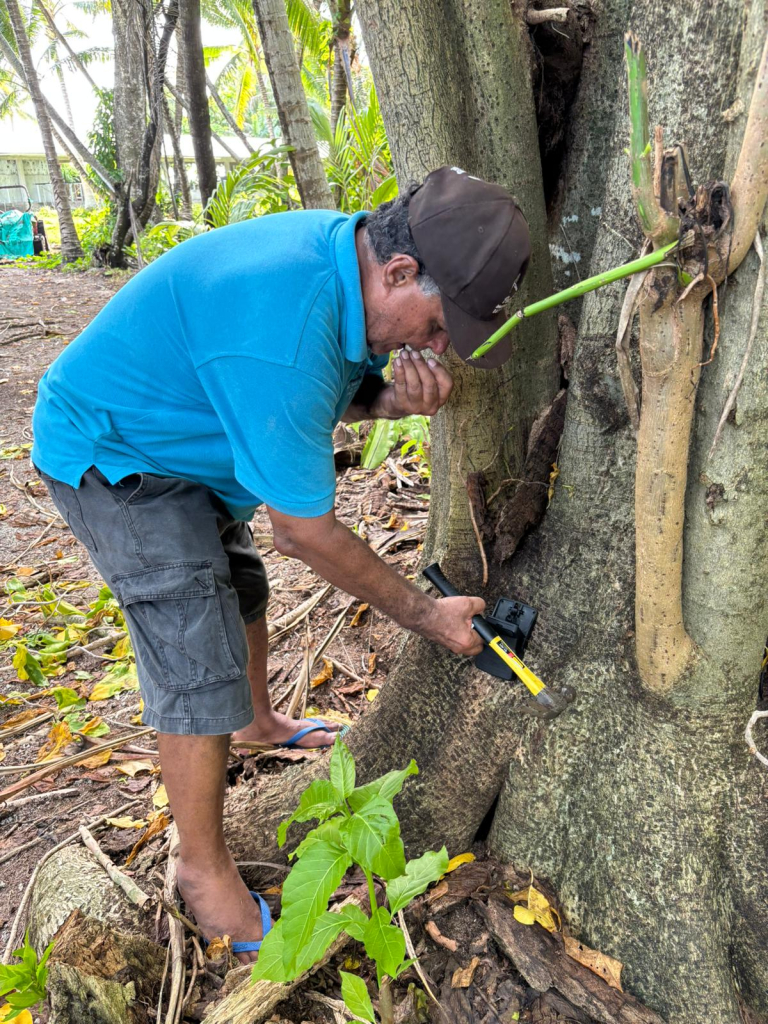
17 July 2025, Funafuti, Tuvalu - In an innovative conservation success, Tuvalu has completed the successful eradication of invasive rats from four islets, namely, Sakalua, Motumua, Teafuone, and Tefatule, within the Nukufetau Atoll, as well as Tepuka and Falefatu. This nation-led initiative, supported by regional and international partners, marks a significant step toward restoring biodiversity and strengthening community resilience in the face of climate change.
The Predator Free Pacific (PFP) programme, part of the Pacific Regional Invasive Species Management Support Service (PRISMSS), was implemented by the Tuvalu Department of Environment with technical support from Island Conservation.
Enabled by PRISMSS and led by the Secretariat of the Pacific Regional Environment Programme (SPREP), the programme was conducted between July and September 2024, building on efforts initiated in 2023 under SPREP’s GEF-6 Regional Invasives Project (RIP).
This initiative is part of the broader PRISMSS “Restoring Island Resilience” (RIR) programme, funded by the New Zealand Ministry of Foreign Affairs and Trade (MFAT) and the GEF 6 RIP. The PRISMSS RIR programme connects Pacific Island countries with technical expertise and resources to manage invasive species at scale.
Tepuka has also seen the complete elimination of an overwhelming mosquito population and a near disappearance of yellow crazy ants, formerly rampant invasive threats. The removal of invasive rats has already begun to benefit native seabirds, endangered green sea turtles, and the coconut agroforests that are vital to the livelihoods of communities on Nukufetau.

Mr Soseala Tinilau, Director of the Tuvalu Department of Environment reflected, that “the project has led to the successful eradication of invasive rats from six islets, which includes four in Nukufetau and two in in Funafuti, which has significantly reduced the threat to native seabirds, coastal biodiversity, and island ecosystems”.
“Communities are already witnessing the positive environmental changes, along with increased understanding of invasive species issues.”
Tuvalu’s leadership in this initiative demonstrates how small island nations can drive impactful, community-led conservation with the right partnerships and support. It is a powerful example of how local action, backed by regional coordination and international funding, can yield transformative results for people and nature alike.
The success of the project was rooted in strong community engagement. Residents of Nukufetau participated in awareness sessions and received hands-on training in eradication techniques, ensuring that the knowledge and capacity to maintain a rat-free environment remain within the community.
The Invasive Species Adviser at SPREP, Mr David Moverley commented, “This is another great example of the difference PRISMSS has made across the region over the past five years, with support from our Member states, PRISMSS partners and donors”.
“PRISMSS coordination has really allowed an exponential increase in outcomes focused towards increasing island resilience through improving biodiversity in the region. It is delivering national priorities and providing opportunities for donors to quickly implement activities to support outcomes which they value for the region.”
Island Conservation provided technical leadership, while BirdLife International and other stakeholders contributed to planning and implementation. The project builds on earlier work under the GEF6 Regional Invasives Project and sets a precedent for future conservation efforts across Tuvalu.

“The recovery we’ve already seen in such a short time is astonishing,” said Jesse Friedlander, a Project Manager at Island Conservation. “The last time we were here, we saw very few coconut crabs. Now, birds and crabs are free to flourish. Healthy reefs aren't optional for Tuvalu, they're a matter of survival.”
A follow-up monitoring mission has confirmed the success of the eradication, and the project model could be expanded to other islets, further enhancing Tuvalu’s ecological resilience and food security.
A community member shared that “we used to see fewer birds and crabs around, but now they’re coming back, and it feels like our island is breathing again.”
“We knew rats were a problem, but now we understand how much damage they were doing to our environment, and we can now know to protect our islands,” said another community member from Nukufetau.
Mr. Sam Panapa, Tuvalu’s National Invasive Species Coordinator commented that “removing these predators will create a safer environment for native species, benefiting biodiversity and supporting sustainable practices for the Nukufetau community.”
“We are grateful to PRISMSS and Island Conservation for the support that the PFP programme has provided in enabling rat removal from our islets but also acknowledge the various communities involved as we all need to work together when it comes to invasive species management and biodiversity conservation.”
PRISMSS and Island Conservation remain committed to working alongside the Tuvalu Department of Environment and local Kaupule (councils) to protect biodiversity, bolster local livelihoods, and build a more resilient future for island ecosystems and the communities who depend on them.
The GEF 6 Regional Invasives Project (RIP) is funded by the Global Environment Facility, implemented by the United Nations Environment Programme, and executed by the Secretariat of the Pacific Regional Environment Programme (SPREP). The Project works primarily in the Marshall Islands, Niue, Tonga, and Tuvalu and has a regional component. Implementation of the GEF 6 RIP is supported by the Pacific Regional Invasive Species Management Support Services (PRISMSS).
For more information on the GEF 6 Regional Invasives Species Project (GEF 6 RIP), please contact the Project Manager Ms Isabell Rasch-Mulitalo, at [email protected]
About PRISMSS: The Pacific Regional Invasive Species Management Support Service (PRISMSS) is a coordinating mechanism designed to facilitate the scaling up of operational management of invasive species in the Pacific. PRISMSS, which is led by the Secretariat of the Pacific Regional Environment Programme (SPREP) brings together experts to provide support within the Pacific region with a focus on protection of indigenous biodiversity and ecosystem function. As a service provider, PRISMSS provides a comprehensive suite of support services in a cohesive, effective, efficient, and accessible manner to Pacific Island countries and territories.
Restoring Island Resilience (RIR): The PRISMSS - Restoring Island Resilience (RIR) is a New Zealand-PRISMSS collaboration project that aims to improve Pacific Island Countries and territories livelihoods and resilience to climate change by reducing the impact of invasive species on natural and agricultural ecosystems through the six PRISMSS programmes.
PRISMSS Powered by: New Zealand Foreign Affairs & Trade, UK International Development, GEF, UNEP & SPREP
PRISMSS Partners: Birdlife International, NZ Department of Conservation, Island Conservation, Manaaki Whenua Landcare Research, National Institute of Water and Atmospheric Research, Pacific Community and SPREP
PRISMSS Programmes: Natural Enemies Natural Solutions (NENS), Predator Free Pacific (PFP), Protect Our Islands (POI), Protect Our Marine Areas (POMA), Resilient Ecosystems Resilient Communities (RERC), War On Weeds (WOWs)
About Island Conservation: Island Conservation is the world’s only international non-profit conservation organization dedicated solely to restoring islands for nature and people worldwide. Island Conservation is committed to a holistic island-marine ecosystem restoration method that combines efforts to improve community livelihoods, manage invasive species, and reintroduce native species.
Media Contact:
• Sam Panapa, Tuvalu National Invasive Species Coordinator: [email protected]
• Sally Esposito, Island Conservation, Strategic Communications Director: [email protected]
• Nitish Narayan, PRISMSS Communications & Liaison Officer: [email protected]
Images: Island Conservation